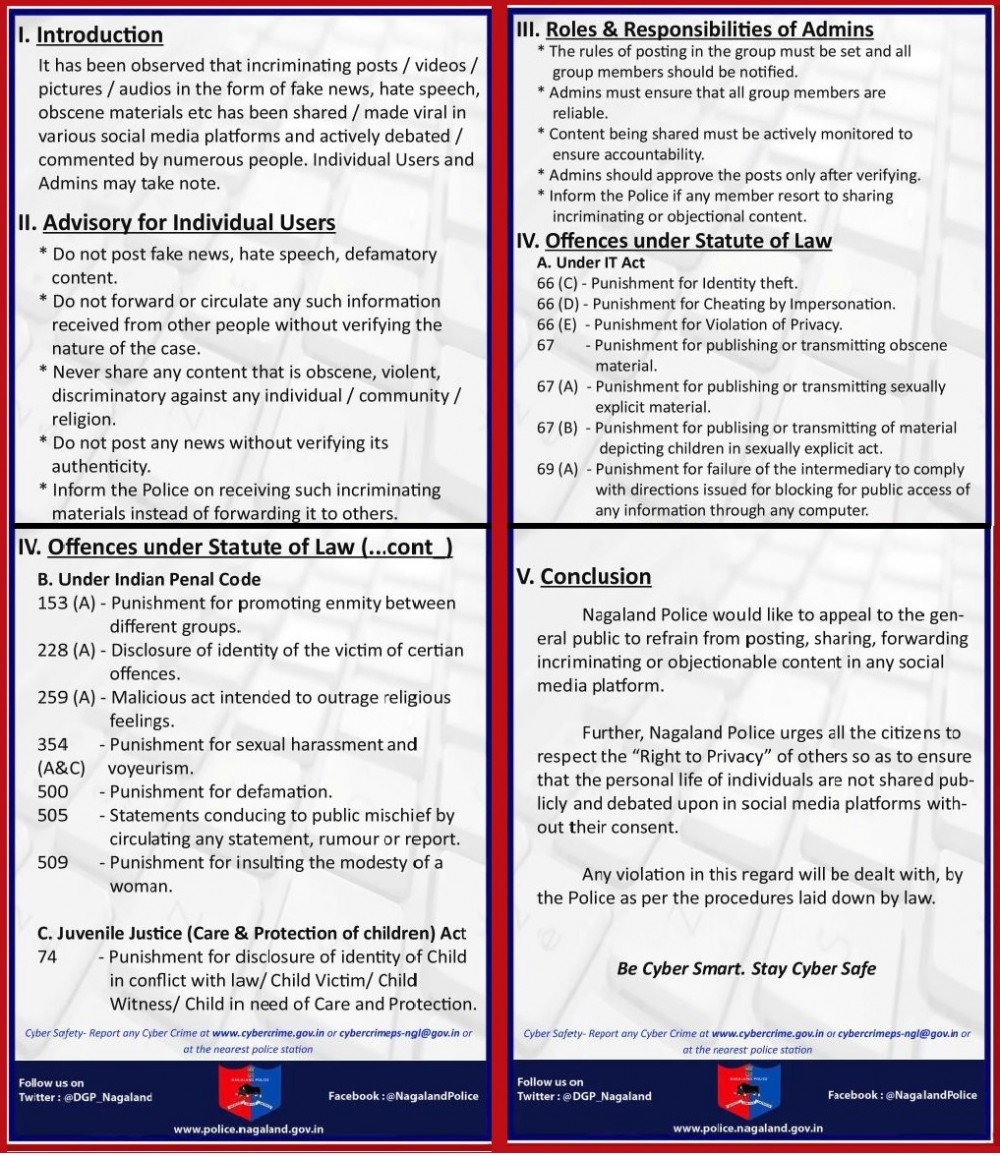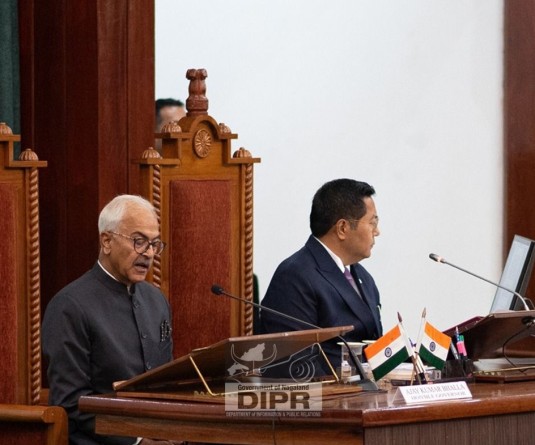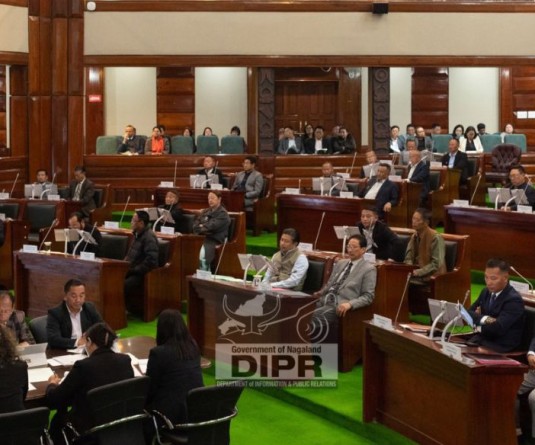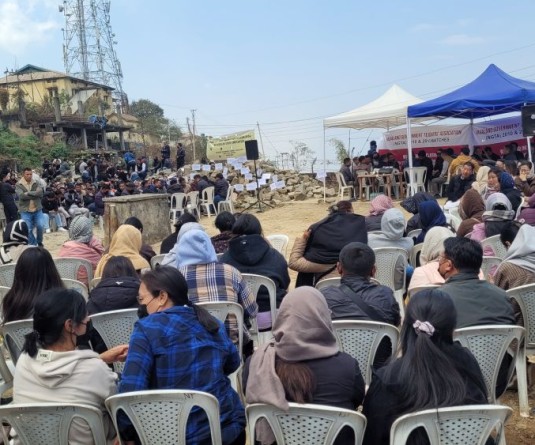The Nagaland Police on July 2 issued an Advisory on Social Media for both individual users and administrators of various social media platforms.

Cautions against posting, sharing, forwarding incriminating and objectionable content, fake news
Morung Express News
Dimapur | July 2
The Nagaland Police, on Friday, issued set of advisory to both individual users and administrator of various social media platforms.
The advisory was issued to check the general public from posting, sharing, and forwarding incriminating or objectionable content in any social media platform and the police further appealed the citizens to refrain from resorting to such activities.
It has been observed that incriminating posts/videos/pictures/audios in the form of fake news, hate speech, obscene materials etc has been shared or made viral in various social media platforms, it noted.
Such contents are actively debated and commented by numerous people and individual users and administrators must take note, the Nagaland Police maintained sharing the sets of advisory on its official Twitter account.
While the post did not specify, it is understood that the administrators of group or page on Facebook, WhatsApp and other platforms are intended targets.
The Nagaland Police also urged all the citizens to respect the ‘Right to Privacy’ of others so as to ensure that the personal life of individuals are not shared publicly and debated upon in social media platforms without their consent.
Any violation in this regard will be dealt with, by the Police as per the procedures laid down by law, it cautioned.
Advisory for Individual Users
The advisory to individual users include refraining from posting fake news, hate speech, and defamatory content.
Do not forward or circulate any such information received from other people without verifying the nature of the case and do not post any news without verifying its authenticity, it said.
The Nagaland Police, in the advisory, also cautioned the users from sharing any content that is obscene, violent, and discriminatory against any individual, community or religion.
“Inform the Police on receiving such incriminating materials instead of forwarding it to others,” it underscored.
Roles & Responsibilities of Administrators
Meanwhile, the advisory also included various do’s and don’ts to administrators on various social media platforms
The rules of posting in the group must be set and all group members should be notified and the administrators must ensure that all group members are reliable, it said.
Content being shared must be actively monitored to ensure accountability and the administrators should approve the posts only after verifying, it added.
Inform the Police if any member resort to sharing incriminating or objectionable content, the Nagaland Police’s advisory further stated.
The advisory cited various offences under the Statute of Law.
Offences under various section of Information Technology (IT) Act, included: 66 (C) - Punishment for Identity theft; 66 (D) - Punishment for Cheating by Impersonation; 66 (E) - Punishment for Violation of Privacy; 67 - Punishment for publishing or transmitting obscene material.;67 (A) - Punishment for publishing or transmitting sexually explicit material; 67 (B) - Punishment for publishing or transmitting of material depicting children in sexually explicit act; and 69 (A) - Punishment for failure of the intermediary to comply with directions issued for blocking for public access of any information through any computer.
Under Indian Penal Code, the offences cited were: Section 153 (A) - Punishment for promoting enmity between different groups; 228 (A) - Disclosure of identity of the victim of certain offences; 259 (A) - Malicious act intended to outrage religious feelings; 354 - Punishment for sexual harassment and (A&C) voyeurism; 500 - Punishment for defamation; 505 - Statements conducing to public mischief by circulating any statement, rumour or report; and 509 - Punishment for insulting the modesty of a woman.
The Nagaland Police’s advisory further cited the Juvenile Justice (Care & Protection of Children) Act, Section 74 which stipulates “punishment for disclosure of identity of Child in conflict with law/ Child Victim/ Child Witness/ Child in need of Care and Protection.”
For cyber safety, report any Cyber Crime at www.cybercrime.gov.in or cybercrimeps-ngl@gov.in or at the nearest police station, it added.






